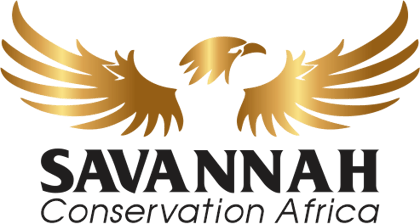
Code of Ethics
1. Savannah Conservation Africa (SCA) is dedicated to protecting, preserving, and sustainably managing savannah ecosystems across Africa. Ethical principles that ensure the well-being of biodiversity, local communities, and future generations guide our work. This Code of ethics establishes the values and principles that govern our conservation efforts, professional conduct, and stakeholder engagement.
2. Commitment to Conservation
Uphold the integrity of all natural habitats by promoting sustainable conservation practices.
Protect endangered species and ensure biodiversity conservation through responsible stewardship.
Utilize scientific research and traditional ecological knowledge to inform conservation strategies.
Prevent and mitigate negative environmental impacts resulting from human activities.
3. Ethical Research and Scientific Integrity
Conduct research and field studies with honesty, transparency, and objectivity.
Ensure that all data collection, reporting, and analysis uphold scientific rigor and ethical standards.
Obtain necessary permits and approvals before conducting conservation activities.
Respect indigenous knowledge systems and integrate them into conservation approaches where applicable.
4. Community Engagement and Respect for Indigenous Rights
Engage with local communities in a manner that respects their cultural heritage, traditions, and land rights.
Foster inclusive decision-making processes that empower communities in conservation efforts.
Support sustainable livelihoods that align with conservation goals and contribute to economic well-being.
Promote education and awareness programs to enhance community participation in conservation.
5. Sustainable Resource Management
Encourage responsible use of natural resources in ways that do not compromise future ecological integrity.
Support sustainable tourism initiatives that benefit both conservation efforts and local economies.
Advocate for policies that promote land restoration, reforestation, and climate resilience.
Implement environmentally friendly practices in all operations and projects.
6. Professional Conduct and Accountability
Maintain high ethical standards in all professional activities and interactions.
Avoid conflicts of interest and ensure transparency in partnerships, funding, and decision-making processes.
Uphold laws and regulations governing conservation and environmental protection.
Report unethical behavior or violations of conservation principles through appropriate channels.
7. Animal Welfare and Ethical Treatment
Ensure humane treatment of wildlife in all conservation, research, and rehabilitation activities.
Oppose poaching, illegal wildlife trade, and exploitation of animals for commercial purposes.
Promote ethical wildlife tourism that does not disrupt natural behaviors or habitats.
Advocate for policies that strengthen wildlife protection laws and enforcement.
8. Collaboration and Partnership Ethics
Foster cooperation with governments, non-governmental organizations, private entities, and academic institutions in pursuit of shared conservation goals.
Maintain integrity and respect in all partnerships and avoid affiliations that conflict with conservation ethics.
Share knowledge, research findings, and best practices to enhance conservation efforts.
Uphold international agreements and conventions that promote biodiversity conservation.
9. Environmental Justice and Equity
Recognize and address environmental injustices that disproportionately affect marginalized communities.
Ensure equitable access to conservation benefits and opportunities for all stakeholders.
Advocate for policies that promote fairness, inclusion, and environmental sustainability.
Oppose discrimination in any form within conservation activities and initiatives.
10. Child Labor Policy
Strictly prohibit the use of child labor in any conservation, research, or operational activities.
Ensure compliance with national and international child labor laws and regulations.
Promote education and skill development opportunities for children in communities affected by conservation activities.
Work with local authorities and organizations to prevent child exploitation and ensure child welfare.
11. Anti-Bribery and Corruption Policy
Maintain a zero-tolerance approach towards bribery, corruption, and fraudulent activities.
Ensure that all financial transactions and engagements with stakeholders are transparent and accountable.
Prohibit offering, accepting, or facilitating bribes or unethical incentives in any form.
Implement training and awareness programs to prevent corruption and uphold ethical business practices.
12. Compliance and Enforcement
Regularly review and update conservation policies to align with evolving ethical standards and best practices.
Ensure that all staff, volunteers, and partners adhere to this Code of Ethics.
Implement mechanisms for reporting, investigating, and addressing ethical violations.
Promote a culture of ethical responsibility and continuous learning within Savannah Conservation Africa.
Conclusion
The Code of Ethics for Savannah Conservation Africa serves as a guiding framework for responsible conservation. By adhering to these ethical principles, we commit to safeguarding Africa’s savannah ecosystems, fostering sustainable development, and ensuring ecological integrity for future generations.


